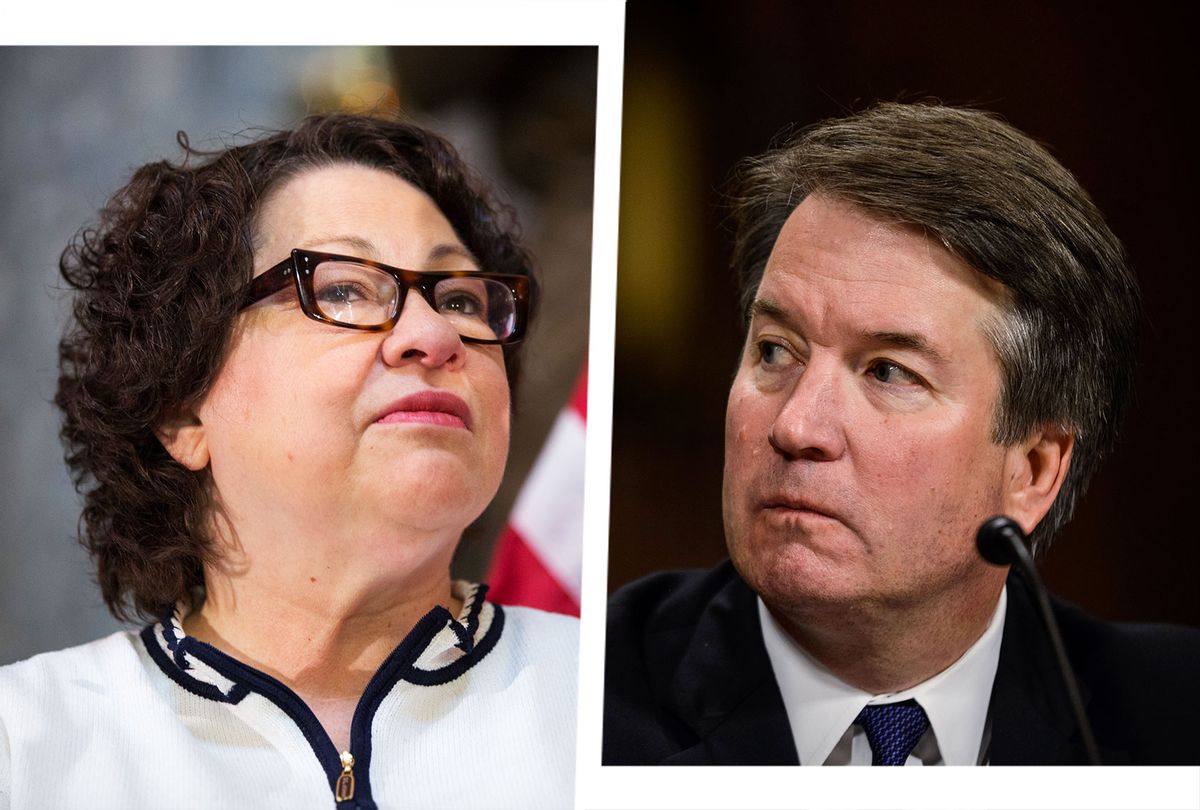U.S. Supreme Court Justice Sonia Sotomayor issued a lone dissent on Friday as her colleagues once again refused to block the Texas abortion ban, even under a request from the Department of Justice.
The court did agree to take up the matter for oral arguments swiftly. On Monday, Nov. 1, the court will hear from both sides in the case on the question of whether the U.S. administration can intervene and temporarily block the law from going into effect as the cases proceed.
But Sotomayor, as she has previously, argued that the court should have issued an injunction blocking the abortion ban from being enforced immediately. The law is already having massive effects on the constitutionally protected right to obtain an abortion in Texas, she argued, and yet a majority of the justices is allowing the state to use procedural loopholes to undermine the court's own ruling precedents.
"The State's gambit has worked," she wrote. "The impact is catastrophic."
To circumvent existing law protecting the right to get an abortion, Texas legislators enacted a scheme the prohibits abortion after six weeks — well before a pregnancy may have even been detected — but outsources enforcement to the courts and citizens. The ban, known as S.B. 8, allows anyone to sue those who assist in an abortion for $10,000. Because of this unique enforcement mechanism, a majority of the Supreme Court's conservative justices have said that the issues are too complex to warrant an immediate injunction against the law.
This decision, Sotomayor argued, is a betrayal of the court's authority — and it is having the practical effect of infringing on the rights of people seeking abortions. She explained:
On a human level, the District Court relied on credible declarations that described the threat of liability under S. B. 8 as "nothing short of agonizing" for abortion care providers. ... Providers are "seriously concerned that even providing abortions in compliance with S. B. 8 will draw lawsuits from anti-abortion vigilantes or others seeking financial gain." ... Patients are "devastated" to learn they cannot access care, and the "turmoil" caused by the Act leaves them "panicked, both for themselves and their loved ones." ... Even among the few women who are able to receive abortion services in Texas, S. B. 8 pushes patients "to make a decision about their abortion before they are truly ready to do so."
To be sure, the court agreed, "[p]regnant people from Texas are scared and are frantically trying to get appointments" in other States. ... The court found, however, that many patients are unable to seek out-of-state care based on financial constraints, dangerous family situations, immigration status, or other reasons. Id., at *42. These individuals "are being forced to carry their pregnancy to term against their will or to seek ways to end their pregnancies on their own." ...
The court also found that patients who are able to leave Texas have encountered restrictions and backlogs exacerbated by S. B. 8, citing evidence of the Act's "stunning" and "crushing" impacts on clinics in Oklahoma, Kansas, Colorado, New Mexico, and Nevada. ... An Oklahoma provider, for example, reported a "staggering 646% increase of Texan patients per day," occupying between 50% and 75% of capacity. ... A Kansas clinic similarly reported that about half of its patients now come from Texas. Id., at *44. The District Court found that this "constant stream of Texas patients has created backlogs that in some places prevent residents from accessing abortion services in their own communities.
"I cannot capture the totality of this harm in these pages," she continued. "But as these excerpts illustrate, the State (empowered by this Court's inaction) has so thoroughly chilled the exercise of the right recognized in Roe as to nearly suspend it within its borders and strain access to it in other States."
Most legal observers expect that the court is well on its way to formally overturning Roe and Casey, the precedents recognizing a right to get an abortion, or to so drastically alter the interpretation of this right that they may as well have been overturned. But it's widely believed the court will use an upcoming case about a Missippi abortion law if it truly does intend to make major changes to its precedent. It's much less clear how the court will handle the Texas case after oral arguments.




Shares